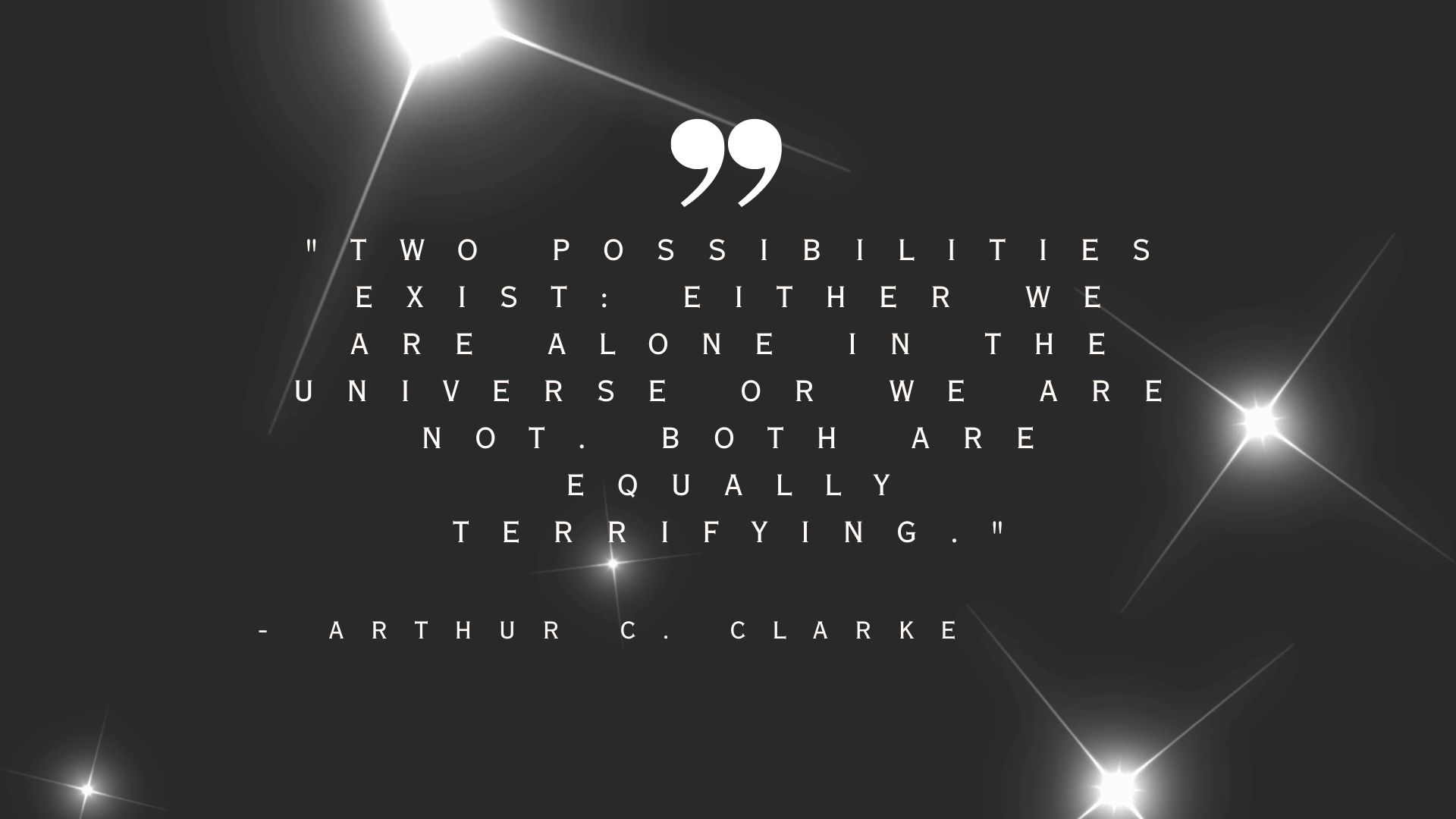“Two possibilities exist: either we are alone in the universe or we are not. Both are equally terrifying.”
– Arthur C. Clarke
The quote, “Two possibilities exist: either we are alone in the universe or we are not. Both are equally terrifying,” attributed to the renowned science fiction author Arthur C. Clarke, encapsulates the profound existential dilemma humanity faces when contemplating the vastness of the cosmos. This thought-provoking statement invites us to ponder the implications of our place in the universe, touching upon themes of isolation, extraterrestrial life, and the unknown. In this explanation, we will delve into the subheadings below to explore the depths of this intriguing quote.
- Cosmic Solitude: Humanity’s Loneliness in the Universe The first possibility presented in the quote suggests that we might be the only intelligent life forms in the vast expanse of the cosmos. If this were the case, it would mean that Earth is an exceptionally unique and rare planet, bearing the sole burden of sustaining life as we know it. Such cosmic solitude raises questions about our significance and purpose in the grand scheme of things. If we are alone, our responsibility to protect and preserve our planet becomes even more paramount, as it is the only home for life that we know of.
- The Quest for Extraterrestrial Life: A Search for Cosmic Companionship On the other hand, the quote also posits that we are not alone in the universe. This possibility sparks excitement and curiosity about the potential existence of extraterrestrial civilizations. The search for intelligent life beyond Earth has been a focal point of scientific exploration and speculation for decades. If we were to discover the presence of other beings, it would revolutionize our understanding of life and the universe, potentially reshaping our worldview and challenging our sense of uniqueness.
- The Terrifying Unknown: Confronting Existential Fear The similarity in the level of terror associated with both possibilities is thought-provoking. The quote implies that regardless of whether we are alone or not, the implications are immense and unsettling. In the case of isolation, we confront the daunting responsibility of being custodians of a lonely planet. Conversely, the existence of other civilizations introduces uncertainty, as we cannot predict their intentions, capabilities, or impact on our own civilization. The unknown aspects of the universe can evoke existential fear, leading us to question our place and purpose in the vast cosmic tapestry.
Conclusion:
Arthur C. Clarke’s quote serves as a poignant reminder of the profound questions surrounding humanity’s place in the universe. Whether we are isolated in cosmic loneliness or accompanied by other beings, the implications of both possibilities are profound and trigger complex emotions within us. While the quote may invoke feelings of fear and awe, it also motivates us to embrace our shared humanity and foster a greater sense of unity, compassion, and stewardship for our planet and its potential cosmic neighbors. In this journey of exploration, we may ultimately discover not only the mysteries of the universe but also the profound truths about ourselves.




